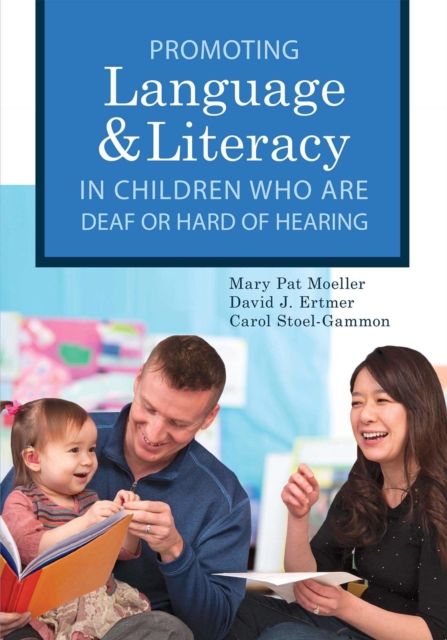
Promoting Speech, Language, and Literacy in Children Who Are Deaf or Hard of Hearing EPUB
Edited by Mary Pat Moeller, David J. Ertmer, Carol Stoel-Gammon
Part of the CLI series
EPUB
Please note: eBooks can only be purchased with a UK issued credit card and all our eBooks (ePub and PDF) are DRM protected.
Description
- audiological assessments and technological interventions for children
- principles and practices for familycentered early intervention
- understanding, supporting, and coaching families
- assessments to identify intervention priorities
- Theory of Mind
- auditoryverbal therapy and phonological interventions
- sign language and sign systems
- use of the internet to deliver intervention services
- elements of supportive early education environments
- approaches for optimizing reading and writing skills
- strategies for promoting social and academic success in integrated classrooms
- and much more
Information
-
Download - Immediately Available
- Format:EPUB
- Pages:456 pages
- Publisher:Brookes Publishing
- Publication Date:02/05/2016
- Category:
- ISBN:9781681250328
Information
-
Download - Immediately Available
- Format:EPUB
- Pages:456 pages
- Publisher:Brookes Publishing
- Publication Date:02/05/2016
- Category:
- ISBN:9781681250328










